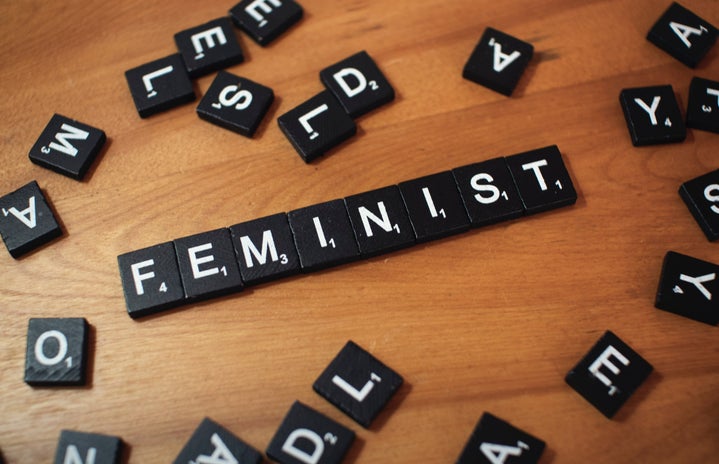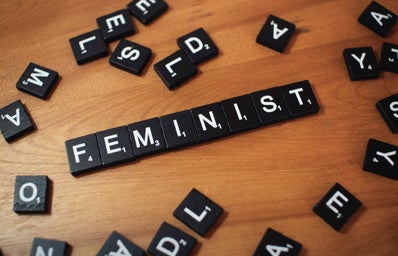I’ve written a lot of articles based on self-love, self-acceptance, body-neutrality, and the experiences of fat people. I’ve focused largely on these topics because of my personal experience as a fat person who has been part of these movements and was very rarely exposed to media or conversations about these things. When writing these, a lot of research on the various movements had to be included, and one thing that always nagged at me about all of this was that all the movements and information appeared to be severely aimed towards ‘women’. The space of taking care of yourself, through following or relating to whichever movement you like, seems to be a very ‘feminine’ thing to do. This doesn’t not make sense considering the view of women throughout history, but I was expecting more all-rounded information or support in modern work.
At this point in time, we’re all well aware that society has largely focused more on beauty standards for women than they have for men. Women have always been expected to enhance (or even change and hide) their features with makeup, always be freshly shaved, wear high heels, and try to shape their bodies to whatever the latest “in” body shape is. (Just to clarify, there’s nothing wrong with doing all of these things; the expectation that women must do these things is what’s wrong). These, of course, led to an overwhelming number of body-image problems amongst women, which have some pretty damaging effects on mental health, relationships with food, and self-worth. It’s also important to consider the fact that a plethora of businesses have benefited heavily from women trying to maintain society’s beauty standards. So, it makes sense that movements targeted towards improved body-image would be targeted at females.
Of course, I’m in no way trying to say that men have no standards or expectations that they’re expected to achieve or maintain. We’ve all heard that for a man to have potential, he has to be rich and physically fit, but entire industries aren’t exactly modelled around this demand of men. Aside from this, men have historically been seen as superior to women and been given more leeway for not meeting certain standards, so there was always a little more wiggle room for them.
Feminism, as most of us know, is aimed at an equality of all sexes. It addresses and argues against concepts of socio-economic inequalities, as well as areas like unequal health-care and health benefits based on gender identification. So, it’s not the common misconception of wanting or thinking that women are better than men. Instead, it’s aimed at putting women on equal footing as men in society (because they’ve been historically inferior to men). Therefore, it’s understandable that these movements – which are targeted towards not being ruled by societal standards- would be labelled as feminist in nature. These movements were deeply important to almost undoing the entrenched patriarchal expectations placed on women, but can also be weirdly toxic at times and don’t seem as inclusive as the concept of feminism.
The reason I say that these movements can be strangely toxic in nature is because they often use being a ‘true feminist’ as a motivating factor for loving yourself. This being the idea that women should love themselves and not hold themselves to society’s standards so that they can stop viewing other women as competition. This sounds pretty good initially, but when you break it down, it gets a little strange. We’re faced with this concept of competition amongst women, and with the idea that women are almost naturally made with a dislike or competitive view of other women-which I think happens far less than society thinks it does. With this, there’s almost this notion of the patriarchal society telling us ‘Oh, but all women envy or hate other women, it’s the way the world works’. Unfortunately, the ‘feminist’ movements then end up running with this concept, arguing that the only way to break the negative emotions towards women is to love yourself. Basically, these movements using this as motivation for self-love seems like an agreement from the ‘feminist’ perspective that women have all these negative emotions and associations with other women. Maybe it’s the way I was brought up, or the generation I’m from, but this seems really bizarre to me.
Beyond this, let’s take a second to think about the media surrounding these kinds of movements- I’m talking about the TikToks, Instagram reels and posts, Buzzfeed articles, all of it. I’ve spent a lot of time on social media with a focus on these movements and it feels like for every 100 posts about women or ‘female’ bodies there’ll maybe be one about men. Media is aimed specifically at ensuring women are comfortable with their stretch marks, and fat rolls, and acne, but very little of the same kind of acceptance or reassurance is produced for men. We have a steady increase of mainly women influencers of all sizes and shapes, and yet very few body-positive male influencers. There’s a sort of ignorance or overlooking of men and their experience with all of these things as well. I often worry that because these movements don’t actively include men, it dismisses the idea of men having body issues or struggling with these sorts of things.
Ultimately, if we consider all of this, are all these self-love and acceptance movements really that feminist? Sort of, but not entirely. Yes, the movements actively go against patriarchal standards, and uplift women in that way, but there’s a gap in these movements for men. I think there’s a lot of confusion about something being feminist, and something addressed to a female audience. In the case of these movements, I can see how the intention is feminist, but ultimately, it tends to be directed at a female audience. I think that going forward, we need to have these movements be more inclusive to addressing all genders and have that well represented in the media


